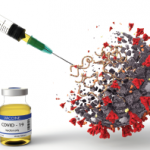“The H1N1 guidelines from the Centers for Disease Control and Prevention [CDC] strongly suggest vaccinations for the immunocompromised or suppressed individual,” says Daniel E. Furst, MD, Carl M. Pearson professor of rheumatology at the University of California, Los Angeles. “For patients with rheumatological disease, there is a higher risk for morbidity and mortality because of the underlying chronic disease and, more importantly, the immunosuppression.” There apparently has been little research into both the safety and efficacy of the H1N1 vaccine in immunocompromised patients or those with rheumatic disease. However, research into the seasonal vaccine shows it is effective in this cohort.
“There are fairly good data suggesting that patients on immunosuppressant medications do receive benefit from the seasonal flu vaccine,” says Dr. Sullivan. “They do make antibodies and that does give protection. There will be exceptions and not all patients will respond equally well to the vaccine.”


